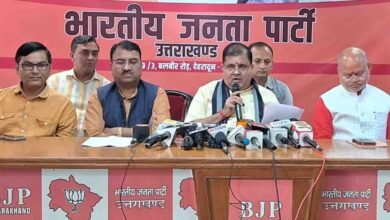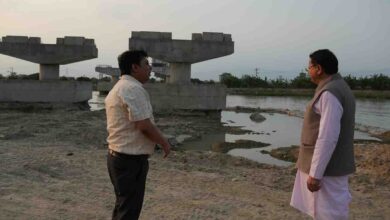Various schools of U’khand among top 10 in national survey

Tuesday, 03 October 2023 | PNS | DEHRADUN
Various schools in Uttarakhand have featured in the Annual EducationWorld India School Rankings 2023-24. The results of the survey conducted by C-Fore were declared recently. This survey features various schools in Dehradun, Mussoorie and Nainital in the top 10 rankings nationwide.
In the vintage legacy co-ed day schools category, Saint Thomas College, Dehradun was ranked eighth nationally. Saint George’s College, Mussoorie was ranked third among the vintage legacy boys boarding schools while Saint Joseph’s College, Nainital was ranked sixth in the category. Convent of Jesus and Mary, Waverly, Mussoorie was ranked first among vintage legacy girls boarding schools, Sherwood College, Nainital was ranked third and Wynberg Allen School, Mussoorie was ranked fourth among vintage legacy co-ed boarding schools. Among boys boarding schools, The Doon School, Dehradun was ranked first, Welham Boys School, Dehradun was ranked second, Birla Vidyamandir, Nainital was ranked fourth, Guru Nanak Fifth Centenary School (Boys), Mussoorie- was ranked fifth and the GD Birla Memorial School, Ranikhet was ranked seventh.
Among girls boarding schools, Welham Girls School, Dehradun was ranked first jointly with Scindia Kanya Vidyalaya, Gwalior, Ecole Globale International Girls School, Dehradun was ranked second, Unison World School, Dehradun was ranked third, Hopetown Girls School, Dehradun was ranked fourth, The Doon Girls School, Dehradun was ranked seventh and Vantage Hall Girls Residential School, Dehradun was ranked ninth. In the co-ed boarding schools category, SelaQui International School, Dehradun was ranked second jointly with The Assam Valley School, Balipara while Kasiga School, Dehradun was ranked fourth.
Among international residential schools, Mussoorie International School was ranked second while Woodstock School, Mussoorie was ranked first among vintage legacy international residential schools. Among government boarding schools, Rashtriya Indian Military College, Dehradun was ranked first and Oak Grove School, Dehradun was ranked sixth while Him Jyoti School, Dehradun was ranked second in the philanthropy schools category.






